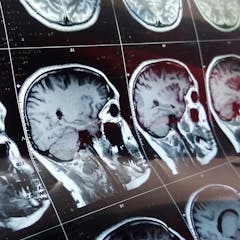
Articles on Cancer
Displaying 61 - 80 of 878 articles

Children typically haven’t accumulated enough cellular damage to develop cancer. Because their bodies are still developing, pediatric cancers differ from adult cancers in key ways.

Oral hygiene is often neglected but research has shown that abnormal bacterial communities in the mouth can cause serious disease.

The little-known gynaecological cancer with a link to HPV.

Obesity is a disease that shares several characteristics with cancer, but does not get the same society-wide recognition of its disease status, so people with obesity are less likely to get treatment.

There’s a lot to learn, understand and organise when you receive a cancer diagnosis. But you don’t need to do it all at once.

Family history may be the most important thing to take into account when it comes to breast cancer risk.

What should you do if you’re tempted to use ChatGPT for medical advice? For starters, don’t use it.

Since 1990, there’s been a nearly 80% increase in the number of under-50s being diagnosed with cancer globally.

Cardiovascular disease and cancer share many parallels in their origins and how they develop. Nanoparticles offer one potential way to effectively treat both with reduced side effects.

Clinical trials have demonstrated the health benefits of cannabis for certain conditions, but many aren’t testing smoked or vaped forms. Research on cannabis smoke is raising concerns.

For people with health conditions, disabilities or injuries that do not qualify for ACC, the road to recovery can be long and hard. It is past time for us to do better.

A failed experiment led the researchers to question their assumptions and realize that, contrary to popular belief, chromosomes interact with and affect genetic expression.

Doctors weren’t happy when celebrity Kim Kardashian promoted whole-body MRI scans recently. But that doesn’t mean they don’t hold promise for understanding ageing on a grander scale.

New memoirs by Rachel Louise Snyder and Steph Lentz chart the territory of being shaped by an ill-fitting version of strict Christianity – and their struggle to free themselves.

Widespread screening for skin cancer may not be necessary, but it is important to understand the risks behind UV overexposure and to get checked early if you have concerns.

A proof-of-concept study using bacteria shows cell therapy can detect tumours – and may one day be able to treat them.

A gap between rich and the poor in cancer deaths for middle-aged people is growing. Deaths from cancer have fallen over time, but less so in our poorest regions where there is less health care access.

Prostate cancer is one of the most common cancers in men. Although watchful waiting is appropriate for low-risk cases, many are diagnosed at an advanced stage because of racial health disparities.

Most of us are vaguely aware we shouldn’t eat too much red meat, but why? And does the type of meat make a difference?

T cells recognize and kill cancer cells but quickly lose their effectiveness. This fast dysfunction may help explain why immunotherapy doesn’t lead to long-term remission for many patients.





